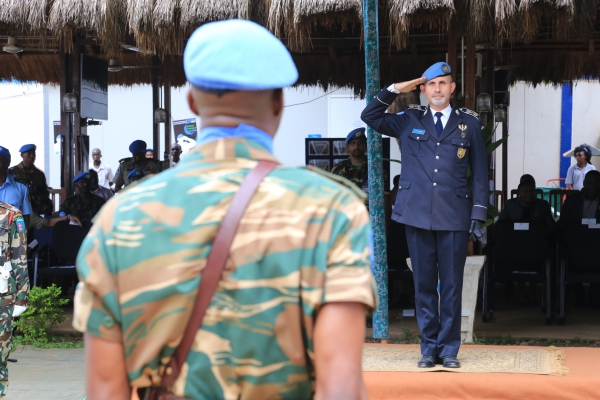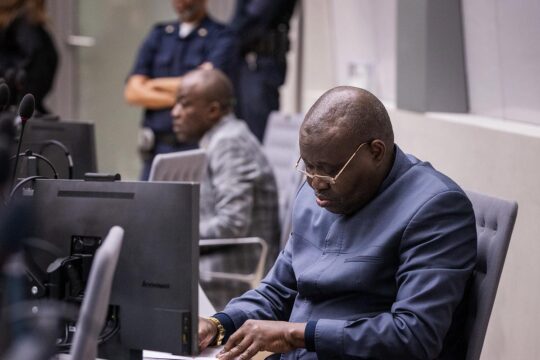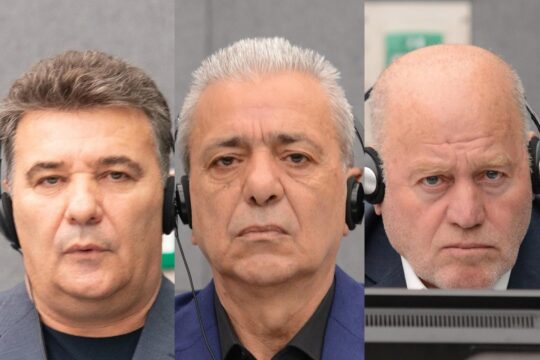In an excellent new book, our colleagues at American NGO ICTJ recognize that transitional justice is “an art, not a science”. The International Center for Transitional Justice, a specialist in the field, says that “part of the art is in understanding the context (of the country concerned), including the opposition to justice”.
ICTJ could have been talking about the Central African Republic (CAR), which was hit by new attacks this week. Unprecedented violence directed mainly at the United Nations force (MINUSCA) left dozens of people dead in Bangassou in the south of the country. “The nature of the CAR’s crisis has changed,” explained French jurist Didier Niewiadowski in an interview with JusticeInfo’s Ephrem Rugiririza. “More and more people are turning against President Touadera and his government because of their greed and inaction. Events in the extreme east of the country, especially what happened in Bangassou, are the first signs of a political rebellion rather than the usual fighting over mineral resources.” According to Niewiadowski, the UN is seen as protecting Touadera and his clan, and that is why it was attacked. He says the current authorities are “incapable of steering a national reconciliation policy”.
And yet on paper, everything looks set for trials for decades of mass war crimes committed in the CAR. In an analysis piece for JusticeInfo, correspondent Stéphanie Maupas in The Hague explains how local courts, a hybrid Special Criminal Court and the International Criminal Court (ICC) are supposed to work alongside in a complex and unprecedented judicial set-up. “But the CAR’s judicial system is very fragile,” writes our correspondent. “On May 10, Amnesty International launched a campaign against any amnesty for crimes, which the rebels are trying to obtain in exchange for disarmament. According to the Central African media, the President of Chad and the African Union are trying to convince Faustin Archange Touadera in favour of amnesty.”
Whereas the CAR faces all these obstacles, the new Gambian government of Adama Barrow is trying to get justice moving. Two Gambians who are currently on the run were on Thursday indicted for the 2004 murder of journalist Deyda Hydara in Banjul. Hydara, who was critical of the regime of Yahya Jammeh, then in power, was shot dead on December 16, 2004. He was a co-founder of The Point newspaper and also a correspondent for Agence France-Presse and Reporters without Borders (RSF) in The Gambia. The two suspects on the run are known in the country to have been members of the "Junglers", considered to have been former president Jammeh’s death squad. Jammeh was beaten in elections by Barrow and fled the country in January this year. Gambian judicial authorities also separately issued an arrest warrant for ex-interior minister Ousman Sonko, who is currently detained in Switzerland.
Meanwhile, several human rights NGOs told the International Criminal Court (ICC) that American banana company Chiquita “contributed” to crimes committed by paramilitaries in Colombia by making payments to them. The company, which stopped its activities in Colombia in 2004, has said it was forced to pay the paramilitaries in order to protect its employees. But in a US case in which the company was fined, the American prosecutor said that, as a multinational, “Chiquita was not forced to stay in Colombia for 15 years, paying terrorist groups that were terrorizing the Colombian people”.
“Chiquita’s past is paved with accusations,” explains JusticeInfo.net. “The United Fruit Company, its ancestor, had to change its identity so as people would forget allegations of corruption, influence peddling and human exploitation.”







